What are sleep cycles?
Before we get into REM sleep, let's talk about sleep as a whole. Sleep is divided into four separate segments that all serve slightly different purposes. And going through these four segments is equal to one sleep cycle.
Every night, we go through this sleep cycle multiple times, as it generally takes about 90-120 minutes to go through all four sleep stages. So, you're not getting all of your REM sleep at once but rather multiple times throughout the night. And when it comes to the sleep stages, we can make a distinction between REM and NREM sleep.
NREM sleep
NREM, or non-REM sleep, covers three of the four sleep stages. So, it only makes sense that NREM sleep makes up the bulk of our time spent asleep. It also takes place before REM sleep in a cycle, meaning that it's the first stage after falling asleep. There are three distinct stages of NREM sleep, although the first two are commonly grouped together. We usually label them as N1, N2, and N3.
N1 and N2 sleep
To start off, N1 and N2 sleep are typically grouped together and called light sleep. N1 occurs first and typically lasts about 10 minutes. This is also the phase where it's the easiest to wake you up as it's the transition from wakefulness to sleep.
N2 is significantly longer than N1 at around 30-60 minutes as it prepares your body for deep sleep. You can also start to experience delta brain waves at this stage of sleep. And, it's still relatively easy to wake up during this phase, at least when compared to deep or REM sleep. On a physical level, it's during N2 that your body temperature decreases and your heart rate slows down.
N3 sleep
N3 sleep is called deep sleep and getting enough deep sleep is quite important for your health. During this stage, there's a more significant amount of delta brain waves as well as movement. It's also during this sleep phase that your body recovers. This is because, during deep sleep, blood flow is increased to your muscles, allowing them to be repaired.
When discussing N3 sleep, it's also worth bringing up slow-wave sleep. Slow-wave sleep typically refers to N3 (and sometimes N4) sleep within the first one or two sleep cycles. Slow-wave sleep is the most consistent “sleep stage”, as its length remains more-or-less the same even when sleep deprivation sets in. But the more important aspect of slow-wave sleep is how it affects our physical and mental health, as it's during this stage that growth hormones are released in the body.
REM sleep
Finally, we've reached N4 or REM sleep. REM sleep's most distinctive characteristic is the rapid eye movement that takes place (which is where it got its name). During REM sleep, your breathing becomes irregular, movement isn't as common (unless affected by REM sleep behaviour disorder), and it's where most of your dreams occur.
Rapid eye movement (REM) sleep is also incredibly important for your brain, as it's during rapid eye movement sleep that your brain solidifies certain neuropathways and memories. This is why we can detect significant brain activity during the REM stage.
Why do we need REM sleep?
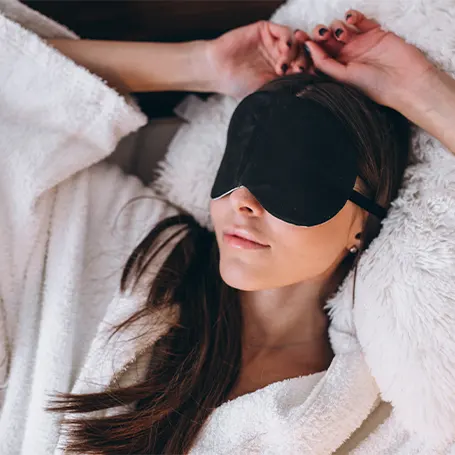
Now that we know what a sleep cycle looks like, and how REM and NREM sleep differ, let's get a bit more specific. Namely, why is REM sleep so important in the first place? Well, there are a few key processes that occur during REM sleep that are essential for our well-being. These include:
- Dreaming – Dreams might sound rather inconsequential but they're actually quite important. This is because dreams help our brain process certain emotions. And, for some people, the process of lucid dreaming that takes place during REM sleep is also quite important.
- Memory storage – During REM sleep, our brain also “goes over” our memories, deciding which ones to hold on to and which ones to let go. This is why it's often said that sleeping before an exam is going to help you more than pulling an all-nighter and studying.
- Brain development – Sleep research has noted that infants and babies spend most of their sleep time in REM sleep. This has given rise to the hypothesis that REM sleep is essential for brain development. Given how much activity is seen in a “sleeping brain”, this seems like a likely outcome.
So, just like NREM sleep helps out body replenish, REM sleep stages help our brains achieve a similar goal. Therefore, spending enough time in either sleep type is essential for your physical and mental health overall.
How much REM sleep do you need?
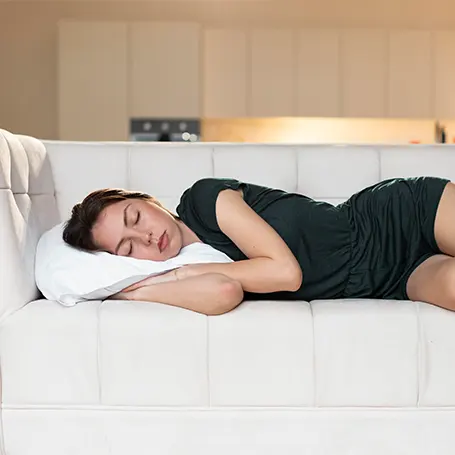
Now that we know how important both REM and NREM sleep are, it's natural to have questions. For example, how much deep sleep do you need? Or how much REM sleep do you need? Well, the answer to this question is rather simple in theory but can be a bit more difficult in practice.
The fact of the matter is that since sleep is broken into consistent cycles, there isn't anything you could do in order to get more deep sleep or more REM sleep. You just need to get enough sleep in general! And if you're not sure whether you're getting enough sleep, we recommend going to our page and doing the sleep calculator test. This is because the amount of sleep you need does differ depending on your age.
It can also help to get a good sleep tracker so that you know exactly how much sleep you're really getting. Some models even track REM sleep in particular.
But as a general rule of thumb, you want about 20% of your sleeping time to be spent in REM sleep. So, just get enough sleep in general and make sure not to do anything that can lead to you getting lower-quality sleep. After all, while there isn't anything that helps you get more REM sleep, there are a few sleep habits and conditions that can make you get less REM sleep.
What affects REM sleep?
As we mentioned a second ago, while there isn't anything you can do in order to get more REM sleep, there are a few things that can lead to less REM sleep. Be it by lowering your overall sleep duration and sleep quality or by making REM sleep harder to come by, there are a few key things in this category you need to take note of. So, let's go through some of the biggest offenders.
Sleep disorders
Sleep disorders by design lower your overall sleep quality and duration. So, it's not a stretch to say that they lower your REM sleep as well. When it tackling a sleep disorder, the methods can vary quite a bit. Some sleep disorders can be dealt with by making lifestyle changes or getting certain medications while others require much longer and specialised procedures.
But regardless of which kind of sleep disorder you might be dealing with, it's always best to consult your GP and even get a sleep study done. This is because quite a few sleep disorders can seem similar at a glance while requiring different treatments. So, note that the following section is just for educational purposes and doesn't substitute a trip to the doctor.
Sleep apnea
Both obstructive and central sleep apnea can result in frequent nighttime disturbances, making it difficult to get consistent sleep. Obstructive sleep apnea can be especially worrisome as the person affected can sound like they're choking.
So, if you or your loved one exhibit very loud snoring or sound like you're choking at night, getting a sleep apnea test could be the right move. In terms of treatment, you'll likely be advised to use a CPAP machine and make certain lifestyle changes, like sleeping on your back or losing weight.
Nightmare disorder
Since dreams frequently take place in the REM sleep phase, nightmares are also on the menu. And while there's nothing wrong with having a nightmare from time to time, excessively frequent nightmares could be a sign of nightmare disorder. When it comes to avoiding these nightmares, certain lifestyle changes can help (like reducing stress) however, seeing a professional is highly advised. After all, this is a proper sleep disorder and not just a string of bad luck with nightmares.
Insomnia
Insomnia is one of the most well-known sleep disorders, however, that doesn't mean that treating insomnia is any easier than with other sleep disorders. And since insomnia directly lowers your overall sleep duration, even leading to sleep deprivation, it's an obvious concern for your REM sleep.
When it comes to treatment, options can vary far and wide. This is because insomnia can just be a sign of a different underlying condition. In these cases, said condition needs to be dealt with first. However, other times, it's just a temporary issue that can be fixed by bettering your sleep hygiene.
REM sleep behaviour disorder
We know that when REM sleep occurs, your experience muscle paralysis. This is so that you don't start punching your partner every time you have a nightmare. However, people suffering from REM sleep behaviour disorder often don't have muscle paralysis even when in REM sleep.
This is why they can actually end up acting out their dreams. And it's important to note that this is distinct from sleepwalking. Most of the time, this disorder will just have the person talking in their sleep and maybe moving around in bed. However, there's also a legitimate risk of hurting yourself or others. So, seek out a professional if you think you might be affected by this disorder.
Certain medication

While we often need medication in order to deal with preexisting conditions or temporary ailments, side effects can include difficulties falling asleep, lowered sleep quality, nighttime disturbances, an irregular sleep schedule and more. And all of these things can in turn affect your REM sleep.
So, we're going to go over a few of the more common medication types and how they might affect your sleep. However, and we can't stress this enough, don't go off your medication without consulting your GP first.
- Cold and allergy medications – These medications can oftentimes result in higher blood pressure and heart palpitations. This in turn can lead to less deep sleep or a shorter sleep duration in general.
- Diabetes medication – While diabetes and sleep have a negative connection already, via sleep apnea and related factors, diabetes medication can also cause some harm. Namely, it can lead to nightmares and/or similar nighttime disturbances.
- Anxiety medication – Just like in the previous example, this can feel like a lose-lose situation. Anxiety by itself can hamper sleep. However, some anxiety medications can directly suppress REM sleep. For this reason, it could be a good idea to try to calm your anxiety at night via other means or consult your GP for alternatives.
These are just some of the medications that can affect sleep. As you might have noticed, they're not always something you'd expect and can in some cases even seem counter-productive. This is why dealing with sleep disorders can be rather difficult without the help of a professional.
Lifestyle choices
Lastly, we want to discuss a few lifestyle choices that can also lower your overall sleep duration. However, we do want to clarify that even though we're calling them lifestyle choices, some of these habits are difficult to change on your own. So, seek professional help if needed.
Drinking alcohol
While a lot of people like to take a nightcap in order to fall asleep, alcohol is anything but beneficial for sleep quality. Alcohol affects sleep quality in a very negative way and can often lead to less deep and REM sleep overall. Of course, this is mostly the case when drinking a larger amount of alcohol in a single sitting.
Certain foods
Knowing what to eat before bed can be a bit tricky as certain foods can lead to a higher sleep latency. This means that it can take a longer time to fall asleep. On top of that, certain foods can also make it more likely that you'll wake up frequently during the night, thus making it more difficult to have consistent sleep cycles.
Caffeine
By this point, most people know that drinking coffee before bed can keep you up for quite some time. However, this goes for any drink that contains caffeine. So, even certain teas (like black teas) can produce a similar effect. As a general rule of thumb, you want at least a six-hour window between your last caffeinated beverage and your bedtime.
Drugs and smoking
Drugs can often lead to poor sleep quality and frequent nighttime disturbances. This is especially true for very addictive drugs, as you can start to experience withdrawal symptoms while trying to fall asleep or even during the night. A similar principle applies to nicotine, especially among people who smoke one or more packs a day. On top of that, things such as throat irritation, the poignant smell of cigarettes, and a large amount of smoke in the room can make falling asleep quite difficult.
Conclusion
Overall, REM sleep is essential for our overall well-being and health. So, making sure that you're getting an adequate amount of sleep every night, while also avoiding anything that could hamper your REM sleep or overall sleep quality, is a must. And if you have any more questions regarding REM sleep or its importance, feel free to ask us all about it down in the comments.

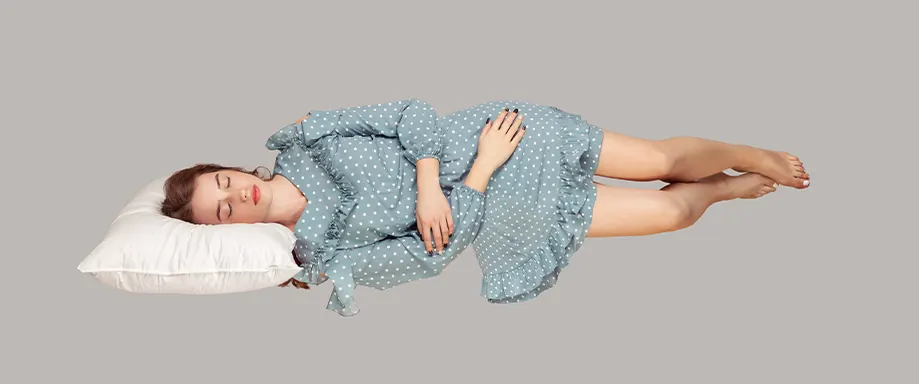
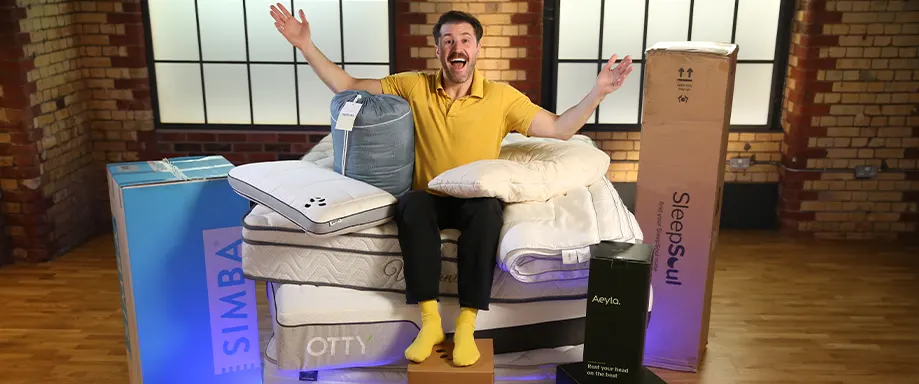
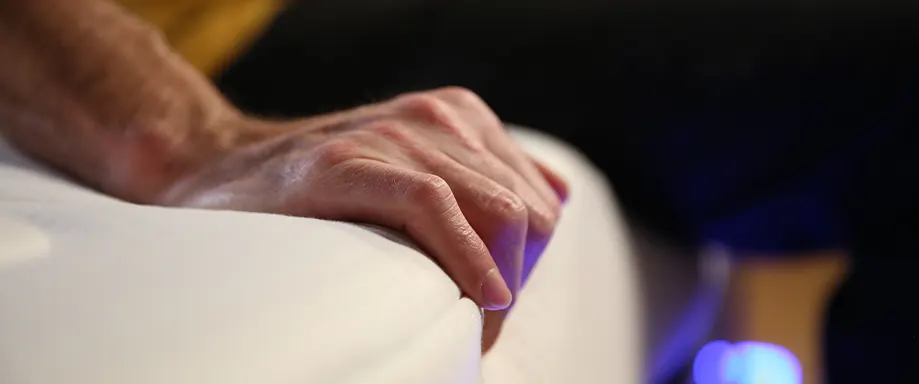













There are no comments yet
"*" indicates required fields